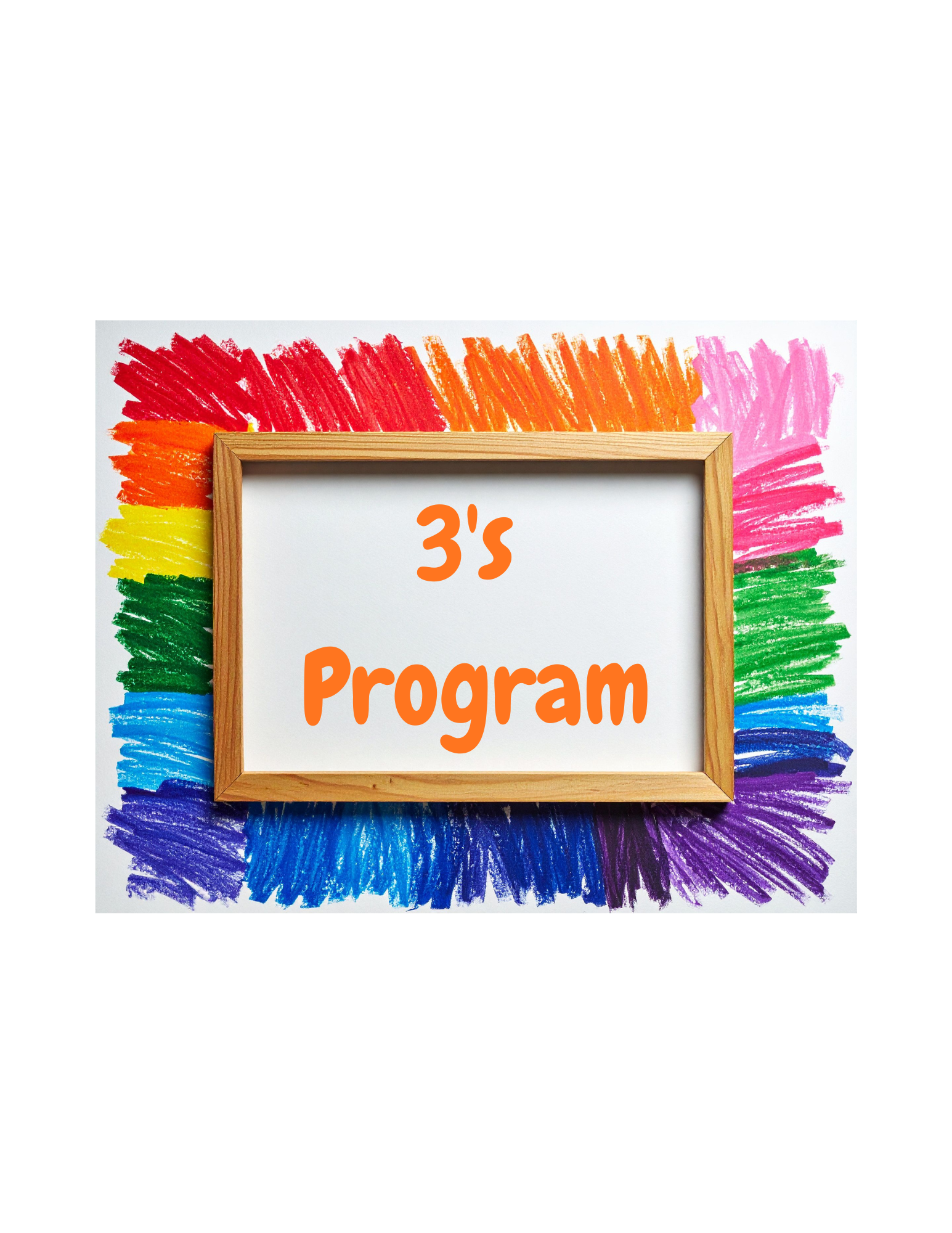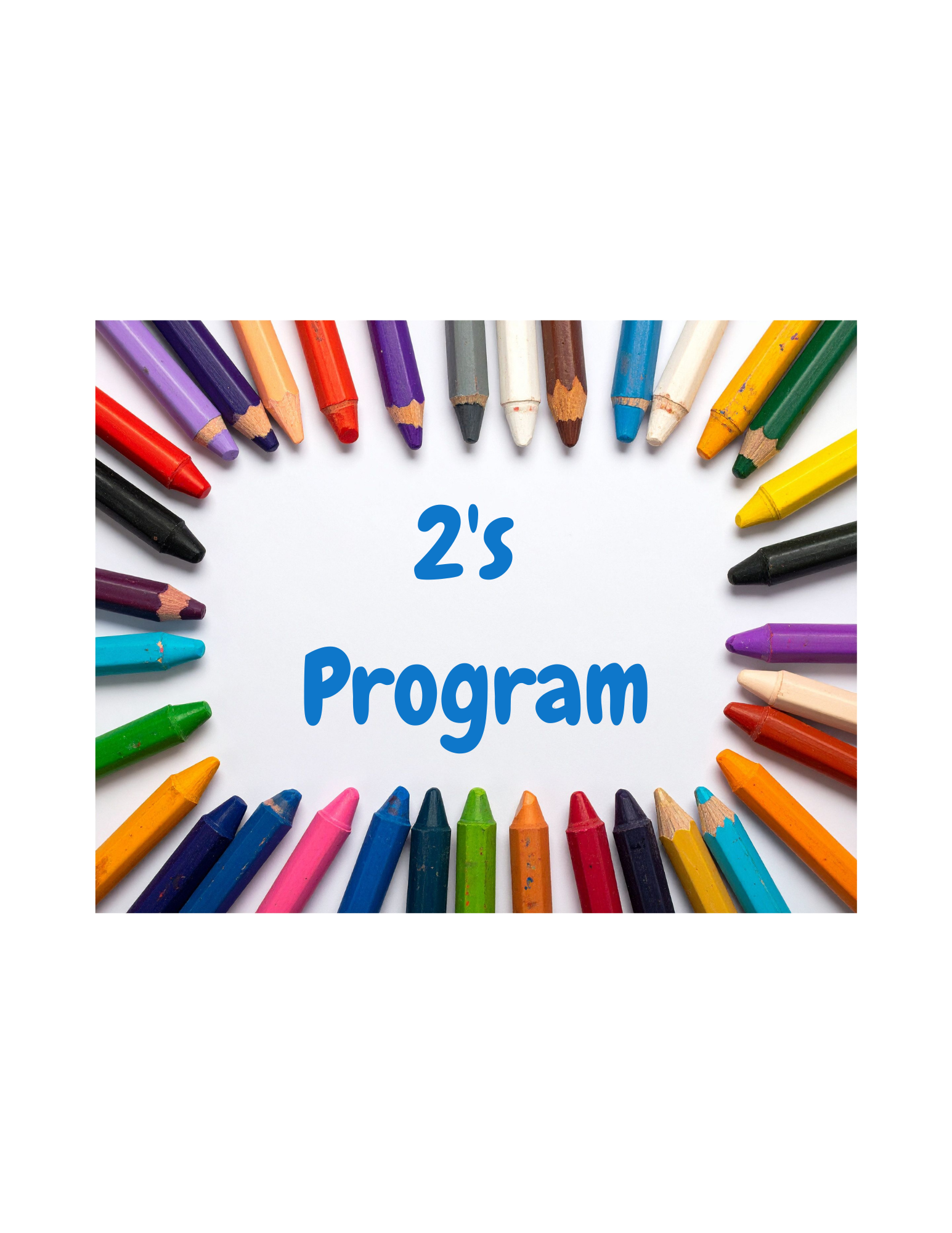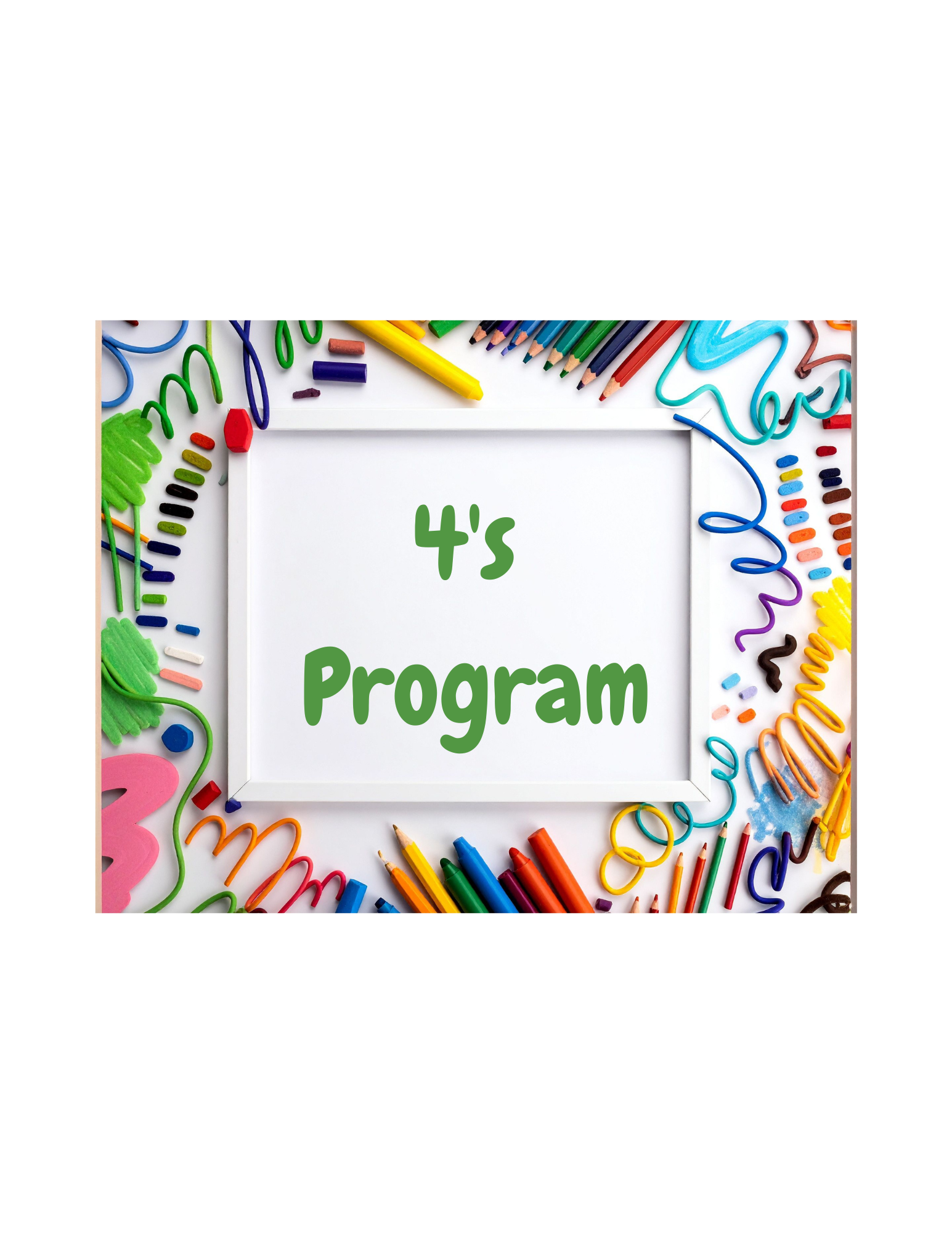Three Year Old Program
Our 3’s Program is available to students who turn 3 years old in the current year. We offer 5-day (Monday through Friday) program. Children attend from 9am - 12pm. There is a qualified Lead Teacher and Assistant Teacher in the classroom with a maximum of 14 students.
The rich curriculum for the 3’s program, which emphasizes learning through playing
includes the following subject areas:
Art: Media such as markers and crayons for drawing, finger painting, easel painting, and items for collages allow the child to experience satisfaction with manipulation, experimentation, and exploration of the materials as well as providing outlets for the expression of ideas and emotions.
Blocks: Building with various types of blocks and accessories provide opportunities for dramatic play, social interaction and cooperative activities with peers, as well as perceptual, spatial and mathematical learning.
Concept Development: Young children are actively engaged in the process of forming many concepts about their world. Through themes developed in the learning centers, our teachers provide experiences to expand each child's knowledge, cognitive skills, language, curiosity and problem-solving skills.
Dramatic Play: Role playing and pretending enables the child to reenact the experiences in the world in order to understand and explore their meaning. With the help of props, a child may explore a number of roles - from being a parent caring for a small baby, a doctor giving shots, a chef to even an entomologist.
Language Arts/Emergent Literacy: Experiences with books, flannel boards, discussions, puppets, storytelling, and other activities aid in the child's language development, help him learn about the world, and promote an early appreciation of literature. Our teachers converse with the children during their play, routines and at mealtimes to promote language acquisition. The emerging literacy of young children is promoted through reading stories, library areas, print rich environments, opportunities to use markers, crayons and other writing materials, and writing centers for preschoolers to explore pre-writing concepts and skills.
Large and Small Motor Activities: Climbing, running, pushing and pulling are a few of the large muscle activities encouraged by the availability of slides, trikes, and various climbing structures. Cutting and pasting, art activities, woodworking, puzzles, and other manipulative materials provide opportunities for the practice and development of small motor skills.
Music: Singing, listening, experimenting with various instruments, and the exploration of various types of music in the classrooms and during weekly music times with a music resource teacher introduce children to musical concepts and an appreciation of music.
Self-Help Skills: Activities tailored to the developmental abilities of each group and individual child, such as helping with cleaning up, washing hands, and pouring juice are introduced into the daily activities and routines to encourage independence and promote self-esteem with an "I can" attitude.
Sensory Play: Sand, water, playdough, fabrics and other sensory media enable the children to explore textures, qualities of objects, changes, and concepts such as empty/full, more/less as well as providing an outlet for relaxation.
Science & Math: Experiences offering firsthand opportunities for scientific discovery and understanding of number and quantity include cooking, sensory play, using manipulatives and games, planting seeds, counting objects and number songs and numerous other activities.
Daily Routine
A typical day at The Hitchcock School includes a variety of different learning experiences. We gradually introduce more routine to the children during the school year and as they progress from the Three’s class to the Four’s class. Each classroom plans a daily schedule which generally includes the following types of activities:
Circle Time – Children learn to interact in a group, are assigned weekly jobs (door holder, line leader, etc.) that foster a sense of empowerment and independence, and discuss everyday events such as the calendar and the weather.
Center Time – This is a critical element of a developmentally appropriate preschool program; children move among a variety of learning centers, including blocks, manipulatives, sensory table, art, dramatic play, discovery, and a reading area. Teachers facilitate and support children in cooperative play.
Snack – We are a peanut-free school due to the many children who have allergies to nuts.
Story Time – By reading and discussing a book together, children learn to ask questions, listen to other people’s opinions, and use their imaginations. Fostering a love of books and reading is a core element of the curriculum.
Outdoor or Indoor Play – As long as weather permits, we head outside for some fresh air each day in our newly designed playground. Our indoor gym is spacious and bright and is used in inclement weather.




